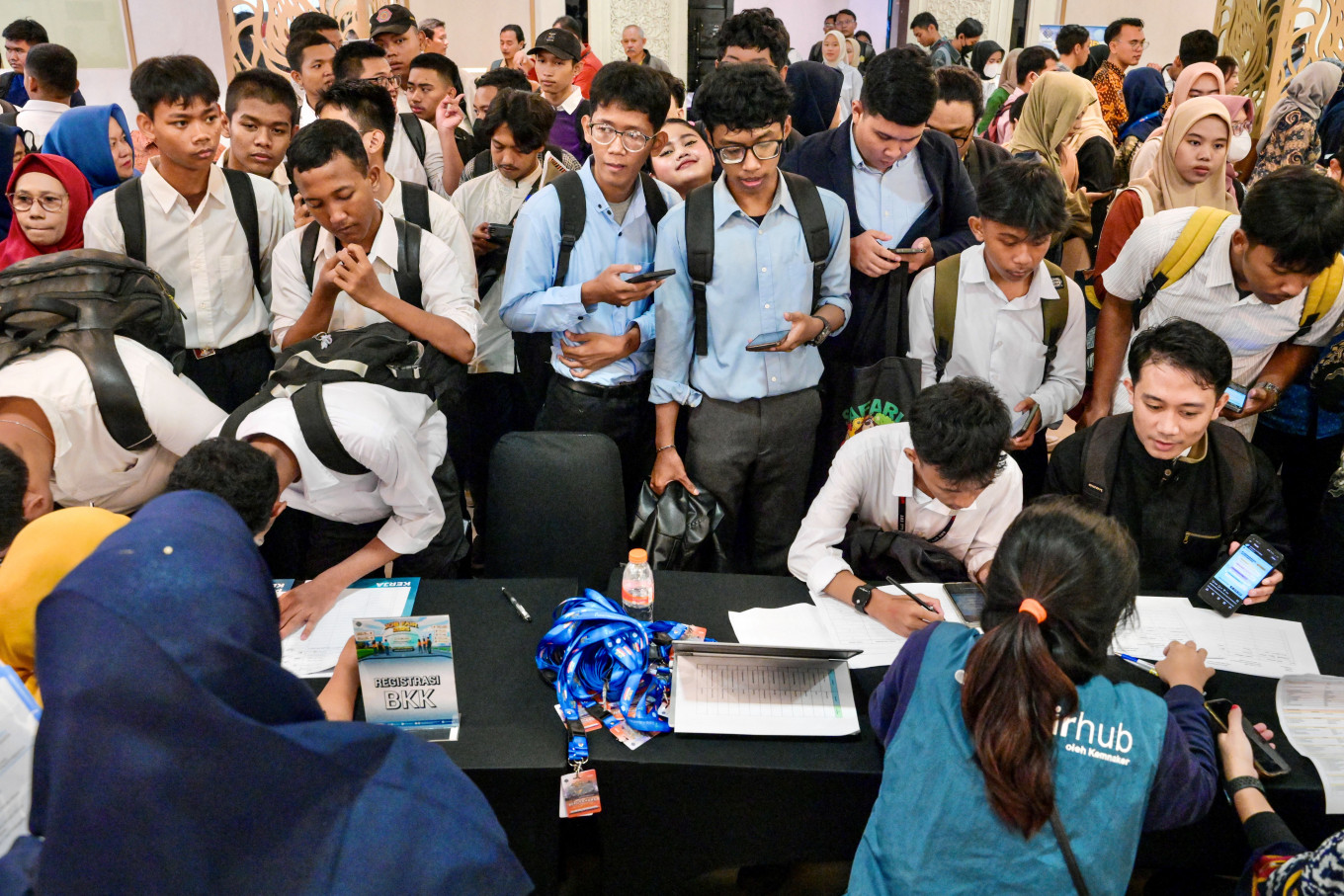Popular Reads
Top Results
Can't find what you're looking for?
View all search resultsPopular Reads
Top Results
Can't find what you're looking for?
View all search resultsA call for collective action on employment
There are deep structural cracks in Indonesia’s labor market that we can no longer afford to ignore.
Change text size
Gift Premium Articles
to Anyone
L
ong queues at job fairs used to be a symbol of opportunity and possibility. Today, they serve as a stark reminder of how employment opportunities are growing more limited.
As companies pull back on hiring amid global and domestic pressures, jobseekers are left navigating a tougher, more uncertain path. Once, companies actively sought workers; now, it’s the job seekers who must compete harder than ever before.
This shift reveals more than just a cyclical slowdown. It reflects deeper structural cracks in Indonesia’s labor market that we can no longer afford to ignore.
Over the last decade, Indonesia has witnessed a troubling decline in labor absorption. In 2013, every trillion rupiah of investment (US$64.5 million) created around 4,594 jobs. By 2024, that number has dropped dramatically to only 1,432 – a staggering 70 percent decline. Though investment flows remain healthy, the economy’s capacity to absorb labor is shrinking.
Meanwhile, informal employment is on the rise, growing from 56.6 percent in 2020 to 60 percent in 2023. Compared to countries like Malaysia (23 percent), Japan (18 percent) and Germany (11 percent), Indonesia’s labor market is heavily informal, an indication of structural weaknesses rather than labor market flexibility.
Adding to the concern is the persistently high unemployment rate among vocational high school (SMK) graduates – a group that, in theory, should be job-ready. According to the National Labor Force Survey (Sakernas) from February 2024, the open unemployment rate (TPT) for SMK graduates stood at 8.62 percent.
The current job scarcity reflects the weakening of the manufacturing sector, which still accounts for 61 percent of formal employment, a trend further underscored by a Manufacturing PMI below 50 in May 2025, signaling continued contraction. In addition, the growth rate of the manufacturing sector has consistently lagged national economic growth for several years.



















